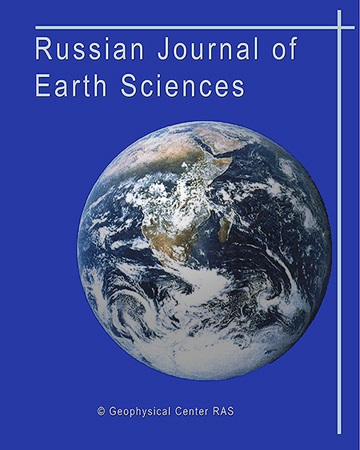Changes of the foraminiferal assemblages in eastern Central Asia during a significant Mesozoic biotic crisis at the Cenomanian-Turonian boundary are discussed. The reported records are based on the study of the most complete section of the boundary Cenomanian-Turonian sediments in Asia that is located in southern Tajikistan, in the Koikitau Range. The ammonite Sciponoceras gracile Zone in this section contains extremely diverse and numerous benthic and planktonic foraminiferal assemblages. The flourishing of benthic foraminifers in this zone indicates the normal marine basin conditions. The changes in foraminiferal assemblages were not catastrophic and not accompanied by mass extinction of fauna, but resulted from the strengthened migration of foraminifers. The benthic and planktonic foraminifer flourishing in this interval was a global phenomenon manifested on shallow shelves not only in eastern Central Asia but also in the Western Interior Basin of North America and in Western Europe. At the same time in the oceans, on the contrary, anoxic conditions (AOE-II) were widespread. The reported materials also indicate the strengthening of lateral water mass circulation in the terminal Cenomanian, when moderately cold intermediate waters from the West European marine basins and warm surface waters from the southern tropical realm concurrently penetrated to Central Asia. It is suggested that one of the reasons for extinction of the characteristic planktonic foraminifer genus Rotalipora immediately prior to the events of the Sciponoceras gracile time, was a sharp restoration of normal marine basin conditions that occurred on the mid-latitude shelves in the Northern Hemisphere.
Terminal Cenomanian, foraminiferal assemblages, Central Asia, boundary Cenomanian--Turonian sediments.
1. Amedro, Geol. Mediter., v. V, no. 1, 1978.
2. Arkhangel'skii, Tr. Geol. Kom., v. 151, 1916.
3. Borneman, Cretaceous sediments of southeastern Central Asia, 1940.
4. Bragin, Abstract of 4th Int. Symp. East. Mediterr. Geol., 2001.
5. Brumsack, Lect. Notes in Earth Sciences, v. 8, 1986.
6. Carter, Bull. Brit. Mus. Nat. Hist. (Geol.), v. 1, 1977.
7. Cobban, Bull. Geol. Soc. Den., v. 33, 1984.
8. Cushman, Cushman Lab. For. Res. Contrib., Sp. Publ., no. 6, 1936.
9. Damste Sinninghe, Earth Planet. Sci. Lett., v. 158, 1998., doi:https://doi.org/10.1016/S0012-821X(98)00052-1
10. Djialilov, Dokl. AN Tadj. SSR, v. 29, no. 10, 1986.
11. Djialilov, Bull. Mosk. Obshch. Isp. Prirody, Ser. Geol., v. 60, 1985.
12. Eicher, J. Paleontol., v. 39, no. 1, 1965.
13. Eicher, Micropaleontology, v. 16, no. 3, 1970., doi:https://doi.org/10.2307/1485079
14. Frizzell, Bur. Econ. Geol., Univ. Texas. Rept. Invest., v. 22, 1954.
15. Gale, J. Geol. Soc., London, v. 150, 1993.
16. Gawor-Biedowa, Acta Palaeontol. Polonica, v. XVII, no. 1, 1972.
17. Hardenbol, SEPM. Sp. Publ., v. 60, 1998.
18. Harries, Geol. Soc. Amer. Sp. Paper, v. 332, 1999.
19. Hart, Geobios, v. 32, no. 2, 1999., doi:https://doi.org/10.1016/S0016-6995(99)80038-2
20. Hart, J. Geol. Soc. London, v. 146, 1989.
21. Hasegawa, Journal Asian Earth Sciences, v. 21, 2003., doi:https://doi.org/10.1016/S1367-9120(02)00109-8
22. Holbourn, Cretaceous Res., v. 23, 2002., doi:https://doi.org/10.1006/cres.2002.1008
23. Huber, J. Foraminiferal Res., v. 29, no. 4, 1999.
24. Huber, Geology, v. 30, no. 2, 2002., doi:https://doi.org/10.1130/0091-7613(2002)030<0123:DSPROE>2.0.CO;2
25. Ingram, Science, v. 264, 1994., doi:https://doi.org/10.1126/science.264.5158.546
26. Jarvis, Newsl. Stratigr., v. 18, no. 3, 1988.
27. Jeans, Geol. Mag., v. 128, no. 6, 1991.
28. Jefferies, Paleontology, v. 4, 1962.
29. Jenkyns, Geol. Mag., v. 133, no. 1, 1994.
30. Kaiho, Palaeogeogr. Palaeoclimatol. Palaeoecol., v. 111, 1994., doi:https://doi.org/10.1016/0031-0182(94)90346-8
31. Kauffman, Ann. Mus. Hist. Nat. Nice, v. IV, 1978.
32. Kauffman, Global Events and Event Stratigraphy in the Phanerozoic, 1996.
33. Keller, Bull. Mosk. Obshch. Isp. Prirody, Ser. Geol., v. XII, no. 4, 1935.
34. Keller, Tr. NGRI, Ser. A., no. 116, 1939.
35. Keller, Cretaceous Res., v. 22, 2001., doi:https://doi.org/10.1006/cres.2001.0264
36. Kennedy, Bull. Geol. Soc. Den., v. 33, 1984.
37. Khakimov, Stratigr. Geol. Korrelyatsiya, v. 6, no. 2, 1998.
38. Kolondy, Palaeogeogr. Palaeoclimatol. Palaeoecol., v. 64, 1988., doi:https://doi.org/10.1016/0031-0182(88)90142-3
39. Korchagin, Bull. Mosk. Obshch. Isp. Prirody, Ser. Geol., v. 73, no. 2, 1998.
40. Korchagin, Biostratigraphy of the Cenomanian and Turonian sediments of the Tajik depression by means of foraminifers, 1988.
41. Korchagin, New Species of the Phanerozoic Fauna and Flora of Tajikistan, 1989.
42. Korchagin, Ways of Increase of the Stratigraphic Schemes' Resolution and Paleogeographic Reconstructions, 2001.
43. Korchagin, Classification of the Mesozoic planktonic foraminifers (Superfamilies Planomalinacea, Rotaliporacea, and Globotruncanacea), 2003.
44. Kuznetsova, Climates in the Epochs of Large Biospheric Reconstructions, 2004.
45. Lamolda, Mem. Mus. Nat. Hist., v. 49, no. C, 1982., doi:https://doi.org/10.1006/cres.1997.0061
46. Lamolda, Cretaceous Res., v. 18, 1997.
47. Larson, Geology, v. 19, 1991., doi:https://doi.org/10.1130/0091-7613(1991)019<0547:LPOEEF>2.3.CO;2
48. Leckie, Paleontography, v. 17, no. 3, 2002.
49. Marks, Bull. Geol. Soc. Den., v. 33, 1984.
50. Norris, Geology, v. 30, no. 4, 2002., doi:https://doi.org/10.1130/0091-7613(2002)030<0299:JTTTIT>2.0.CO;2
51. Norris, Geology, v. 26, 1998., doi:https://doi.org/10.1130/0091-7613(1998)026<0823:LLSSTF>2.3.CO;2
52. Orth, Geophisical Research Letters, v. 15, 1988.
53. Porthault, Le cretace superieur de la "Fosse Vocontienne'' et des regions limitrophes (France, Sud-East), 1974.
54. Premoli Silva, J. Foraminiferal Res., v. 29, no. 4, 1999.
55. Robaszynski, Ann. Sci. Geol. Nord., v. 2, 1993.
56. Robaszynski, Cahiers de micropaleontologie Nat. Res. Sci. Paris, v. 1-2, 1979.
57. Robaszynski, Bull. Cent. Rech. Exlor. Prod. Elf Aquitaine, v. 6, no. 1, 1982.
58. Robaszynski, Bull. Cent. Rech. Explor. Prod. Elf Aquitaine, v. 14, no. 1, 1990.
59. Schlanger, Geol. Mijnbouw, v. 55, 1976.
60. Sepkoski, Dynamics of extinction, no. 4, 1986.
61. Simakov, Tr. VNIGRI, v. 2, 1952.
62. Stelck, Res. Council Alberta, v. 68, 1954.
63. Stelck, Res. Council Alberta, v. 70, 1955.
64. Tappan, J. Paleontol., v. 62, no. 5, 1988.
65. Tronchetti, Systematique, Biostratigraphie, Paleoecologie, Paleogeographie, no. 510, 1981.
66. Vassilenko, Tr. VNIGRI, v. 80, 1954.
67. Voigt, Geol. Rundsch, v. 92, 2003.
68. Wan, Journal Asian Earth Sciences, v. 21, 2003., doi:https://doi.org/10.1016/S1367-9120(02)00090-1
69. Wan, Palaeogeogr. Palaeoclimatol. Palaeoecol., v. 199, 2003., doi:https://doi.org/10.1016/S0031-0182(03)00543-1
70. Wilson, Geology, v. 30, no. 7, 2002., doi:https://doi.org/10.1130/0091-7613(2002)030<0607:TTCGHU>2.0.CO;2
71. Zenya, Memoir Geological Society of India, no. 37, 1996.














